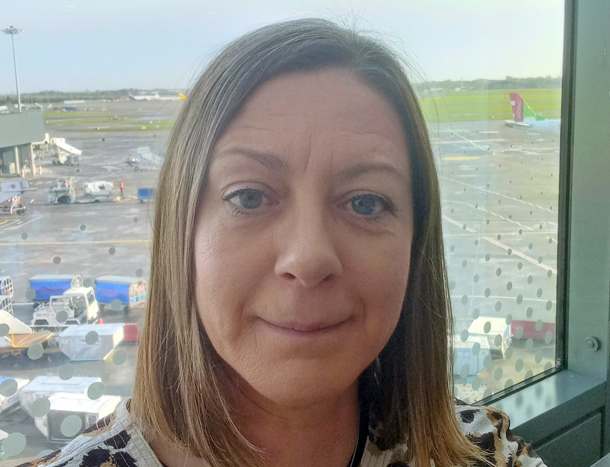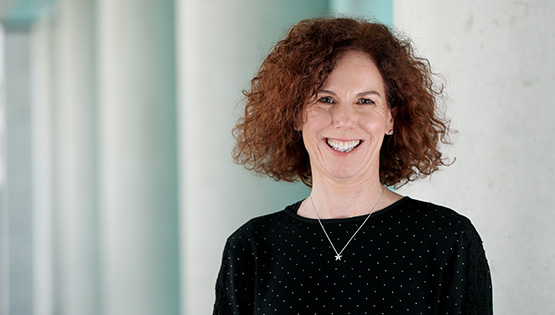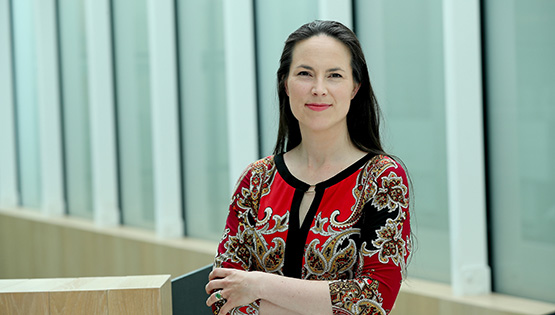Micro-credential
4 months
Online - Part-time
10 ECTS
05 February 2026
About
Enhance your knowledge with the Micro-credential in Physical Activity and Health Behaviour Change in Clinical Populations from RCSI School of Physiotherapy and the Department of Health Psychology.
You will improve your ability to consider patients’ individual needs, capabilities, preferences, and social contexts regarding physical activity engagement. Weave theory with case studies, skill development and clinical simulation to ready healthcare professionals to support individuals with chronic conditions as they make sustained behaviour change and increase physical activity.
Designed to complement the HSE 'Making every contact count' (MECC) initiative, it will enhance your ability to deliver health behaviour change interventions to augment MECC training.
Throughout the course, expert clinical educators, researchers and practitioners will help you build the skills needed to support physical activity in those with long-term health conditions. The module uniquely uses RCSI’s expertise in simulation to nurture practical and communication skills, enabling you to apply knowledge and health behaviour change tools in practice.
This course is a Level 9 award on the Irish National Framework of Qualifications.

Learn the skills to motivate people with health conditions to change their physical activity and sedentary behaviours
Enhance your autonomy supportive communication skills e.g. motivational interviewing, the 5As approach
Reflect on how to consider patients' individual needs, preferences, and social contexts in measuring, monitoring and setting physical activity and sedentary behaviour goals
Suitable for
This programme is suitable for healthcare professionals, including social care professionals.
What you will learn
What our students say

"I thoroughly enjoyed this module: it provided such practical approaches for clinical practice, the learning environment was so open and positive with refreshing delivery. It also opened up new career opportunities."
Faculty highlight
Register your interest
Course information
On successful completion of the module the student will be able to:
- Critically apply public health approaches to physical activity including national and global physical activity guidelines.
- Critically apply activity assessment tools to measure physical activity in clinical populations.
- Critically discuss the determinants of health and participation and the role of the healthcare or exercise professional in health promotion and behaviour change.
- Critically discuss the physiological and psychological effects and health benefits of physical activity and sedentary behaviour across the life span.
- Critically evaluate methods to measure and support changes in physical activity and sedentary behaviour.
- Critically apply a range of behavioural and communication techniques to assist the patient in optimising their behaviour and to facilitate self-management.
What you will study
The module comprises of three interconnecting units. The units have been designed to scaffold your learning by using real-life clinical cases which you will encounter in each unit as the module progresses. We believe this approach will help you to weave your academic learning with your ‘real world’ learning in your clinical setting. This weaving together of experience and learning aims to effectively close the theory-practice gap.
Delivery is over a four-month period using a blended approach using interactive online materials.
| Unit | Access to online materials |
| Unit 1 |
6 February 2025 |
| Unit 2 | 7 March 2025 |
| Unit 3 | 25 April 2025 |
Delivery is over a four-month period using blended approach combining interactive online materials followed by in-person workshops at the St. Stephens Green Campus, RCSI Dublin, Ireland.
Unit 1: Fundamentals of Physical Activity
- Access to online materials from: 6 February 2025
Unit 2: Principles and Practice of Behaviour Change
- Access to online materials from: 7 March 2025
Unit 3: Communication Skills
- Access to online materials from: 25 April 2025
RCSI's micro-credentials may be stacked to build to a higher award.
We are proud to be a recognised University of the National University of Ireland (NUI).
Recognition by Ministries and bodies in other jurisdictions must be determined by the individual applicants.
Admissions
To be considered for entry into the programme, applicants must:
- Be a healthcare professional, including social care professionals.
- Hold a bachelor degree. If you don’t hold a bachelor degree, please see the recognition of prior learning pathway outlined.
Each application will be assessed on an individual basis.
If English is not your first language, you will also need to supply a copy of an academic IELTS examination or equivalent, with an overall score of at least 6.5 and no individual band below 6.5. English language requirements for RCSI Postgraduate programmes are published here.
If you do not meet the minimum academic requirements above, you may still be eligible to apply through recognition of prior learning (RPL). RPL is the assessment of knowledge, skills and competence previously acquired.
Learning occurs in many contexts which include work, involvement in social and community activities, or learning through life experience generally. RPL does not give credit for experience as such; rather it considers the learning that was acquired as a result of the experience.
RPL may be used to gain:
- Admission to courses/programmes where a person may not have obtained the standard entry requirements.
- Exemptions from course modules which duplicate the learning outcomes an individual has already demonstrably acquired through prior learning.
Total fees: €1,350 (needs to be paid on acceptance of the course).
Please note:
- Fee includes all resources and access to our online learning portal.
- RCSI accepts no obligation to refund any fee, or part thereof, in respect of a student who chooses to withdraw from a programme.
- If you choose to withdraw from a programme you are liable for the full fees owed for the seat on that programme.
How to apply
Applications for this course are currently closed. For more information, please register your interest above.



